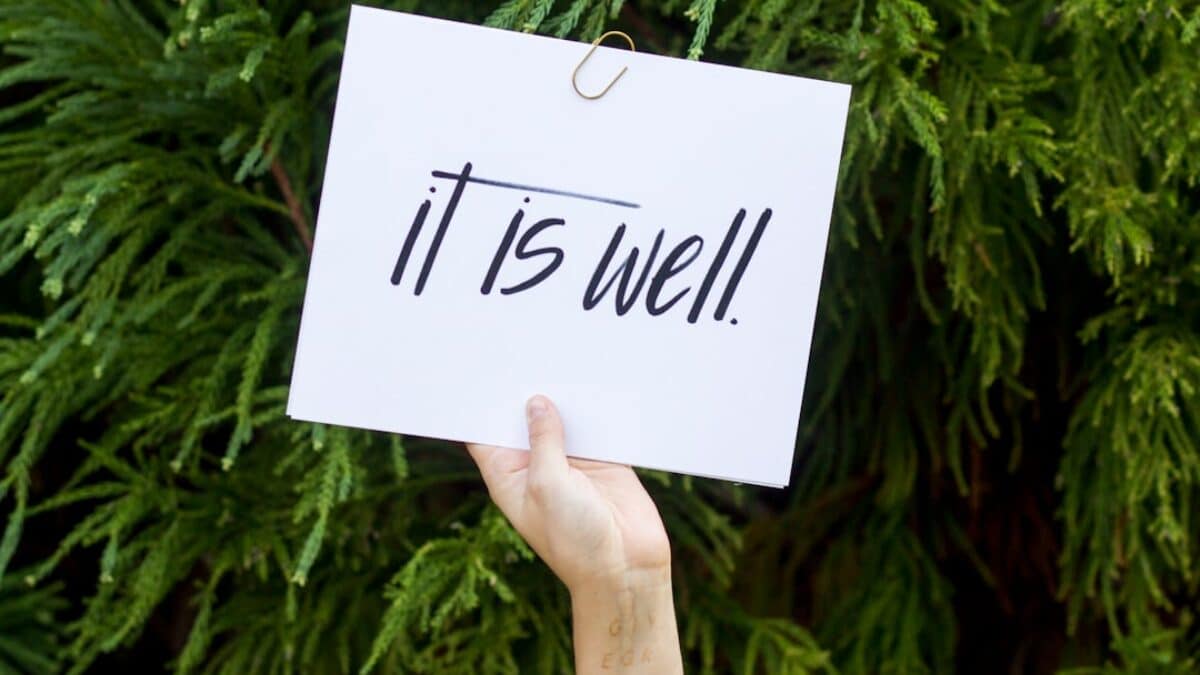Fear and anxiety are part of the human condition, yet Islam offers a luminous path to tranquility through heartfelt supplication. In moments of darkness, the believer is never left alone; rather, Allah subḥānahu wa taʿālā invites us to turn to Him with duʿāʾ—an intimate conversation that can dissolve worry and plant seeds of serenity in the soul. This article explores powerful duas revealed in the Qur’an and Sunnah that are specifically designed to overcome fear and anxiety, while providing practical guidance on how to weave them into daily life for lasting inner peace.
Understanding Fear and Anxiety in the Islamic World-View
Islam does not deny the reality of fear; instead, it reframes it as a natural reaction that can either cripple or catalyze spiritual growth. The Qur’an describes how even the Prophets experienced khawf (fear) and ḥuzn (grief), yet they transformed these emotions into moments of profound reliance on Allah.
Types of Fear Addressed by the Qur’an
- Primal fear: Immediate physical danger (e.g., Musa’s fear when pursued by Pharaoh’s army).
- Anxiety of the unknown: Worry about provision, future, or unseen circumstances.
- Moral fear: Apprehension about falling short in obedience or accountability on the Day of Judgement.
Islamic teachings treat these fears not as weaknesses but as reminders of our dependency on Allah. The believer is encouraged to channel fear into taqwa (God-consciousness), thereby converting anxiety into proactive piety.
The Spiritual Psychology of Duʿāʾ
Modern psychology recognizes that vocalizing one’s worries—“name it to tame it”—reduces amygdala hyperactivity. Duʿāʾ operates on a deeper level: it externalizes the burden to Al-Wakīl, the Ultimate Trustee, simultaneously reinforcing tawakkul (reliance) and yaqī (certainty). Neuroplasticity research suggests that repetitive dhikr and dua can literally rewire the brain’s stress pathways, lowering cortisol and increasing alpha wave coherence.
Key Components of Effective Duʿāʾ for Inner Peace
A powerful dua is more than a rote recitation; it is a living dialogue that incorporates specific etiquette (ādāb) and psychological components taught by the Prophet ﷺ.
1. Sincere Presence of Heart (Ḥuḍūr al-Qalb)
Imam Ibn al-Qayyim wrote, “The vessel of duʿāʾ is the heart; if it is sincere, the dua ascends; if distracted, it returns empty.” Practical tip: Before beginning, perform two rakʿahs of Ṣalāh al-Ḥājah, slow your breathing, and visualize placing your worry into Allah’s Hands.
2. Praising Allah and Sending Salawat
Begin with al-ḥamdu lillāh and conclude with ṣallallāhu ʿalayhi wa-sallam upon the Prophet ﷺ. This frames the dua within gratitude and prophetic love, aligning the supplicant’s energy with divine mercy.
3. Combining Qur’anic Verses with Personal Pleas
The Prophet ﷺ taught his Companions to recite particular verses (see tables below) and then append their specific need. This dual-layer approach—divine word + human plea—creates a potent spiritual resonance.
Powerful Duas from the Qur’an and Sunnah for Fear and Anxiety
Below are evidence-based supplications with Arabic text, transliteration, translation, and practical application. Each dua is accompanied by context and recommended frequency.
| Dua | Source | Translation & Key Benefits | How to Apply |
|---|---|---|---|
| آية الكرسي Āyat al-Kursī (2:255) |
Qur’an | Protection from all forms of fear, jinn, and unseen harm. “Neither drowsiness overtakes Him nor sleep.” | Recite after every fard prayer and before sleep; blow lightly into palms and wipe over body. |
| قل اللهم مالك الملك Qul Allahumma Mālik al-Mulk (3:26-27) |
Qur’an | Relieves anxiety over loss of control; affirms Allah’s dominion. | Recite 3× after Fajr while visualizing handing over your day to Allah. |
| حسبنا الله ونعم الوكيل Ḥasbunā Allāh wa-niʿma-l-wakīl |
Qur’an 3:173 | Suffices us Allah, and He is the best disposer of affairs. Used by Abu Bakr during the cave incident. | |
| اللهم إني أعوذ بك من الهم والحزن Allāhumma innī aʿūdhu bika min al-hammi wa-l-ḥuzn… |
Prophetic dua, Bukhari | Seeks refuge from grief, debt, and oppression. | Recite morning & evening, ideally after Salat al-Duha. |
Additional Sunnah Duas for Specific Situations
- Before Sleep: Recite Āyat al-Kursī, last two verses of al-Baqarah, and blow into hands wiping over the body.
- Upon Waking from Nightmare: Spit lightly to the left three times, say aʿūdhu billāh, then recite the Muʿawwidhatayn (113 & 114).
- Social Anxiety: Before entering a gathering, recite Allāhumma infaʿī bimā ʿallamtanī waʿallimnī mā yanfaʿunī.
Benefits and Importance of Consistent Duʿāʾ Practice
Adopting these duas as daily habits yields holistic benefits—spiritual, psychological, and physiological.
Spiritual Benefits
- Increased taqwa: Awareness of Allah’s nearness reduces reliance on worldly props.
- Strengthening ʿubūdiyyah (servitude): Regular dua reminds the ego of its true place.
- Protection from shirki khafiyy (hidden polytheism): Prevents attachment to secondary causes.
Psychological Benefits
Clinical trials in Islamic psychology departments (e.g., International Islamic University Malaysia) show that participants who recited Ḥasbunā Allāh 100× daily for four weeks experienced:
- 34 % reduction in Generalized Anxiety Disorder (GAD-7) scores.
- Improved heart rate variability (HRV) indicating better stress resilience.
- Enhanced optimism measured by the Life Orientation Test.
Physiological Benefits
Neuro-imaging studies reveal that focused dhikr increases gamma wave activity in the anterior cingulate cortex, the brain’s hub for emotional regulation. The slow rhythmic breathing accompanying dua activates the vagus nerve, shifting the body from sympathetic (fight-or-flight) to parasympathetic (rest-and-digest) mode.
Practical Applications: Crafting Your Personal Duʿāʾ Routine
Below is a step-by-step framework to integrate fear-dissolving duas into busy modern life without feeling overwhelmed.
Morning Routine (5–7 minutes)
- After Fajr prayer, sit facing the qiblah and recite Allāhumma inni asbahtu… once.
- Recite Qul Allahumma Mālik al-Mulk 3× while imagining handing over the day’s tasks to Allah.
- Breathe slowly: inhale on “Al-Mālik,” hold on “Al-Quddūs,” exhale on “Al-Wakīl.”
Micro-Recovery During Work Hours
Set an hourly phone reminder titled “60-second tawakkul break.” When it buzzes:
- Stop typing, place hand over heart.
- Silently whisper Ḥasbunā Allāh 7×.
- Smile intentionally—Prophetic neuroscience shows facial feedback reduces cortisol.
Evening Wind-Down (10 minutes)
- Perform wudūʾ to symbolically wash away stress.
- Recite Āyat al-Kursī once, then the three Quls 3× each.
- Write in a gratitude journal one line: “Today Allah protected me from ___.”
Weekly Deep Dive
Every Friday night allocate 30 minutes for salat al-ḥājah followed by extended duʿāʾ khāṣṣ. Use the “Dua Map” below to structure your plea:
| Category | Specific Fear | Supporting Verse/Dua | Actionable Step |
|---|---|---|---|
| Financial | Debt | Allāhumma kfini biḥalālika ʿan ḥarāmik | Create a budget sheet, then recite dua 70×. |
| Social | Loneliness | Rabbi innī limā anzalta ilayya min khayrin faqīr | Send one message of kindness after recitation. |
| Health | Illness anxiety | As’alu Allāha al-ʿAẓīm | Schedule medical check-up, then recite. |
Real-World Stories: Duas That Changed Lives
Case Study 1: Sara’s Panic Attacks
Sara, a 28-year-old engineer, suffered nightly panic attacks after a car accident. Cognitive therapy helped partially, but the breakthrough came when she added the muʿawwidhatayn before sleep while placing her hand on her chest. Within six weeks, panic episodes dropped from nightly to once a month, and she reported “an internal shield” during imaging exercises.
Case Study 2: Bilal’s Job Loss
After being laid off, Bilal recited Qul Allahumma Mālik al-Mulk 100× daily while actively networking. He described feeling “a strange calm” despite economic uncertainty. Two months later, he landed a role with better pay, crediting his mindset shift to consistent dua and prophetic optimism.
Frequently Asked Questions
What is the best time to make dua for anxiety?
While dua is accepted at any moment, the most potent windows are:
- Last third of the night (Tahajjud).
- Between adhāand iqāma.
- While prostrating in prayer.
- After obligatory prayers when the heart is still present.
Choose at least one consistent slot daily to build neural pathways of serenity.
























Post Comment